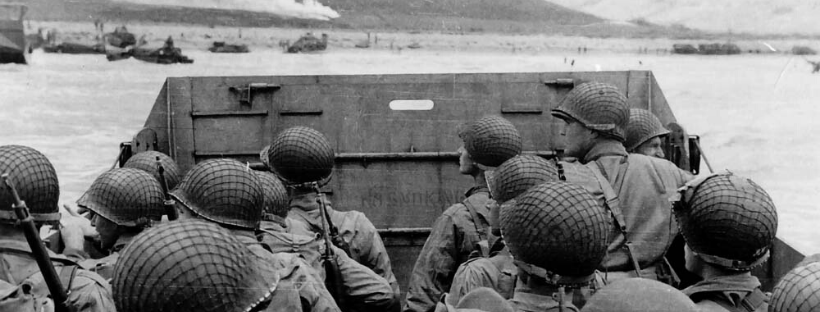Blog
Why D-Day Still Matters Today

June 6, 2020
Those who don’t know their history are doomed to repeat it. Let it not be said of us.
On June 6, 1944 allied troops stormed the beaches of Normandy, France. That day marked the start of a two month long battle codenamed Operation Overlord. American, British, and Canadian forces came together with General Dwight D. Eisenhower at the helm as the supreme commander of 12 nations’ forces to liberate France from Nazi Germany.
Now 76 years after the notable battle, we still remember the events of that day, the careful planning that preceded it, and the loss of life that resulted. Most of all we remember D-Day because it was the impetus for the liberation of Europe and eventually for the destruction of Nazi Germany. It goes without saying that without the successful liberation of France and Eastern Europe that began on this day, the world as we knew it would cease to exist.
The battle opened the long-awaited second front against Germany – a mission planned multiple times but foiled before it could come to fruition.
What can we learn from D-Day?
- The President acted as a calming voice to quell the fears of a worried and downtrodden nation. That evening, back in the United States, President Franklin D. Roosevelt led the nation in a prayer through his national radio broadcast. The text was released in advance to the public so they could pray along with him at the designated time. Roosevelt understood that he could use his role and the technology of the time to reach the American people with a message of hope, not divisiveness.
- No man is an island. The same could be said of major battles. The success of D-Day and the subsequent liberation of France was only possible because of Allied efforts on the homefront – the contributions and sacrifices of seemingly ordinary men and women.
- The battle was successful because of the combined efforts of multiple nations. Although American, British, and Canadian soldiers are the ones heralded as the main forces behind the D-Day attack, more than 12 nations contributed manpower and supplies to the effort. The military and political leaders of the day recognized that they were a stronger force united than they ever could be attempting to find the German machine alone. Though our enemies have shifted over the subsequent years, the fact remains that nations can accomplish more good with the strengths of the others to counteract their weaknesses.
Let us not take for granted the sacrifices of the men and women who came before us.
